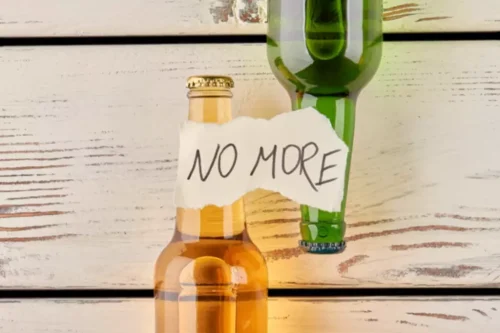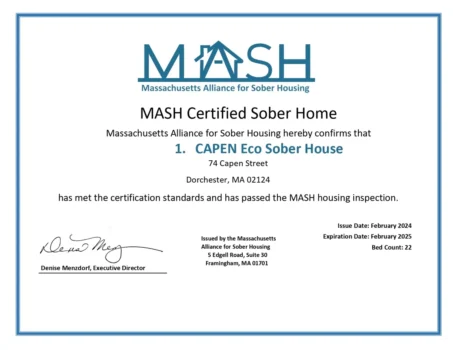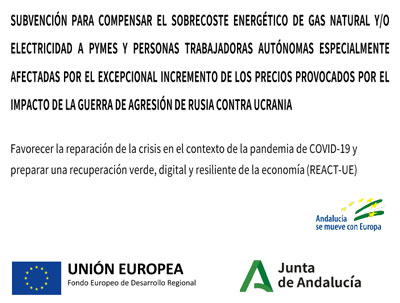
They can help you set realistic goals and create a plan for long-term recovery. A relapse isn’t the end—it’s a sign that more support is needed, and therapy is a strong place to start. Learning how to manage stress in healthy ways is https://ecosoberhouse.com/ critical for long-term recovery. CBT helps individuals challenge the distorted thoughts that often drive relapse and replace them with healthier, more rational thought patterns. Recovery can feel isolating, but surrounding yourself with positive, understanding individuals is one of the best ways to stay sober.
- ’ It’s not only about avoiding substance use but also building a fulfilling life in your recovery.
- Whenever feeling a craving to use, or in general feeling anxious or “off,” ask yourself if you are feeling any of these symptoms.
- Identify what triggered the relapse and make a plan to prevent it from happening again.
- Sometimes a lapse is for a day or two, followed by regret and recommitting to recovery.
- When an urge comes, it can be difficult to manage it, especially in the beginning of recovery.
Environmental Triggers

It is essential to change behavior, make an effort to be more positive, take care of yourself and engage in recovery activities to overcome emotional relapse. Relapses occur for 40-60% of recovered addicts, but it is essential to remember that just because relapse is common doesn’t mean it is inevitable. Experts stress the importance of early intervention techniques and a relapse prevention plan to decrease the likelihood of a Sobriety full relapse. Loneliness and isolation are known factors that put people at risk of relapse.
Controlling Urges and Cravings
- Clients are encouraged to understand the concept of a recovery circle.
- The reality is that experiencing a relapse happens in three distinct stages that can start unfolding long before someone picks up a glass of wine or takes a couple of pills.
- These can include family members, friends, sponsors, and recovery coaches.
- He received a BA in Psychology, certification in Drug and Alcohol Counseling, and a Master’s in Counselor Education with a focus in Clinical Mental Health.
Having a robust support network is one of the most important factors in successful recovery. This network may include family members, friends, sponsors, and professional counselors. These supporters can provide much-needed emotional support, guidance, and accountability when they’re most needed, such as after a triggering event. Regularly engaging with supportive people helps reinforce positive behaviors and provides a safety net during challenging times.
- Focus on replacing your past drug use with new positive activities.
- Marlene is passionate about health equity and reducing disparities to ensure that high-quality care is accessible to everyone.
- During this stage, the individual might start thinking about returning to substance use, although they may feel conflicted and not want to give up on their recovery.
- Recognizing these signs early can provide an opportunity to intervene and prevent a full relapse.
Mental Health
Strong relationships provide accountability, encouragement, and emotional support during recovery. Setting up a system to reach out if they sense you may be heading toward a relapse might also be helpful. This way, you can ensure that someone will be there to remind you of the benefits of sobriety and provide support. No matter how strong your willpower is, you can’t fight relapse alone. You must accept help from supportive family and friends when you need it. Mindfulness is a practice that involves being present in the moment and being aware of your thoughts without judgment.
Description of the Three Stages of Relapse
He is passionate about the work he does, and has worked towards implementing what he’s learned, to his own life for his own continued personal growth. Joseph is always looking for opportunities to learn more and grow his skillset with the central goal of improving the lives of those around him. If you have overcome an addiction to drugs or alcohol, you deserve to be proud of yourself, but you should know that recovery isn’t linear and it never what is relapse, and give 3 skills for preventing it from happening. truly stops.
- Little Creek Lodge has lots of great treatment programs and options with a fully trained staff that are there to assist the needs of you or your loved ones.
- Rory’s previous professional experience has been with individuals across the spectrum of psychiatric care from those requiring acute stabilization to ongoing maintenance care.
- Going back to rehab after a relapse will help you identify the root cause of your substance abuse, develop healthy coping skills, and learn what you need to do to stay sober.
- Urges and cravings often start in high-risk situations, but just having free time or being alone can also be a big challenge.
- This is the final stage where you actually start using substances again.



Leave a Reply